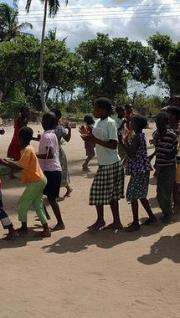Mother is ?more essential? to orphans than breadwinner father

(PhysOrg.com) -- The role of a mother in African families is even more essential to the well-being of a child than the role played by the breadwinner father, according to a study published in the latest issue of the journal Demography.
The Oxford University research team found that if a child loses their mother before they are 15 years old, that child is likely to be shorter in height, poorer and have less schooling as than those who live with their mothers until that age. They discovered that motherless orphans were nearly two centimetres shorter, had a year less of schooling and were likely to be 8.5 per cent poorer over the course of their lifetime. Although children who lost their father were also found to have a lower final height and receive less schooling, this could not be directly linked to the death of the child’s father.
The study was carried out in Kagera, Tanzania, a region ravaged by AIDS and HIV. Over 700 (718) children were interviewed in 1991-4 and then interviewed again as adults in 2004, within which time nearly a fifth of them had been orphaned - losing one or both parents.
This research is unique in demonstrating that being an orphan is not a temporary problem but has long-term, permanent effects persisting into adulthood. It fits in with other recent studies highlighting that the impact of HIV-AIDS is likely to be felt in Africa for generations to come.
Professor Stefan Dercon, from the Centre for the Study of African Economies at Oxford University, said: ‘What is perhaps surprising from this study is the huge impact that the death of a mother - not a father- has on a child. Aid programmes currently tend to target the income losses from losing family breadwinners, which would predominantly be associated with losing a father. Yet this study shows that the economic impact of a father’s death does not have a clear effect on a child’s life prospects. In the local context, it is often simply assumed that extended families will care for any orphans, in line with local norms, especially when mothers die. What we do see, and this is consistent with other studies, is that the role of the mother is essential to a child’s well-being, in ensuring that child is schooled and properly fed.’
The causal link shown in this study between a mother’s death and the long-term prospects of an orphan could have implications for policy makers. Up until now it has been widely believed that the death of the family breadwinner, most often the father, has the greatest impact on orphans, who constitute a considerable proportion of the current generation of young Africans. Perhaps the most controversial conclusion of the study is that while policies to reduce the death rate of mothers are linked with the well-being of children, reducing the death rate of fathers do not have this impact. However, the study adds that cutting the death rate among fathers is still important to other areas of a child’s welfare, and paternal mortality is also an important indicator for identifying vulnerable children.
Provided by Oxford University














